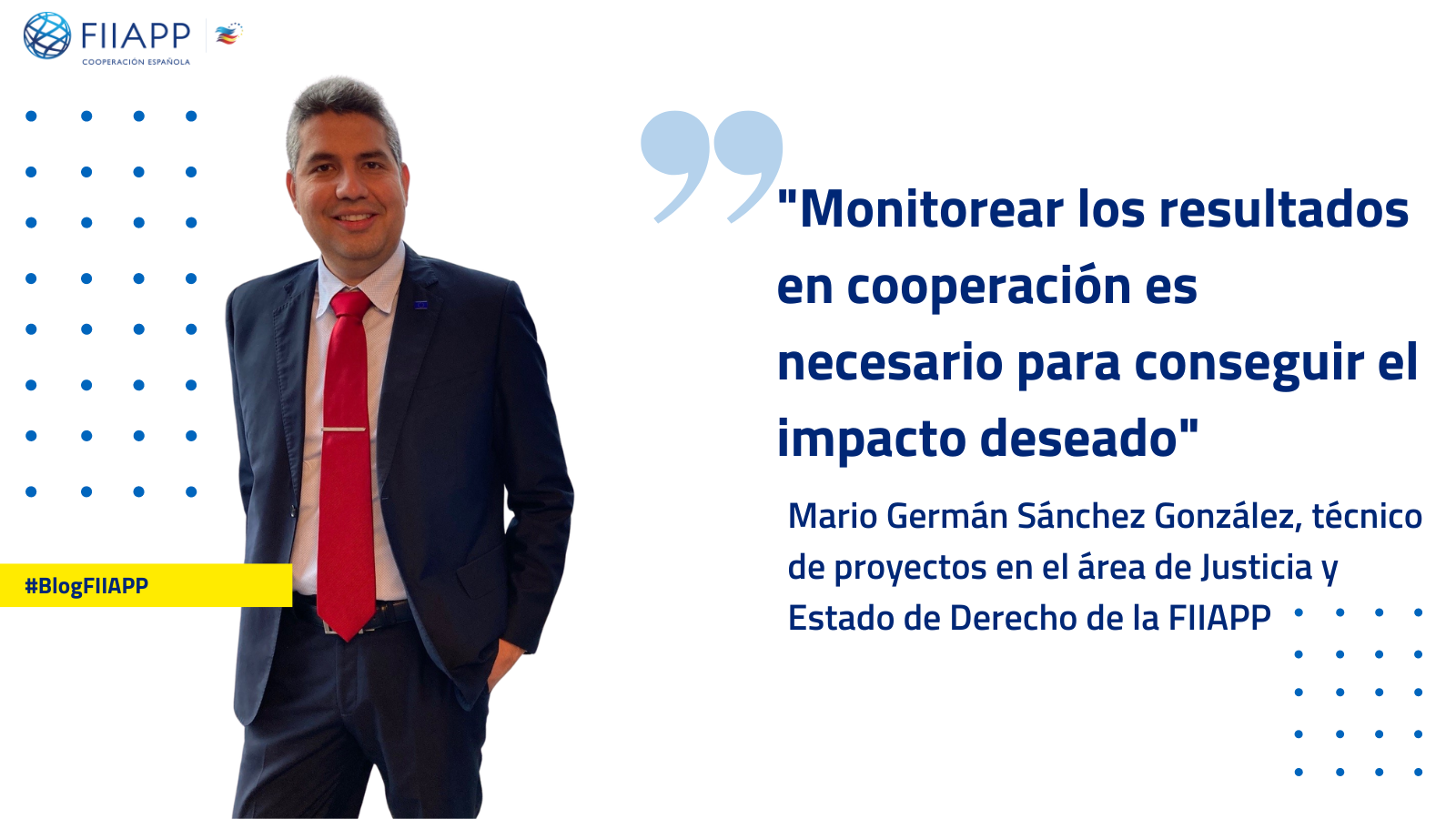-
31 August 2022
Category : Interview
Why is it important to analyse the results of cooperation projects?
Analysing and evaluating the results of public technical cooperation is a basic pillar for the correct development of any cooperation action. This is the commitment that is made at the beginning, during and at the end of a project: it is not only an obligation as part of our public sector, but it is also an exercise in responsibility to evaluate the effectiveness of aid

We talk about this with Mario Germán Sánchez González, expert in monitoring and evaluation of cooperation programmes and project technician in the area of Justice and Rule of Law at the FIIAPP.
Why is it so important to measure results in public technical cooperation for development?
There is a global consensus outlined for sustainable development, to which all cooperation actions must respond and contribute, seeking to increase the impact on the reduction of poverty and inequality and the improvement of public systems. In this field, defined, measurable and traceable results are a necessary starting and finishing point to achieve the desired impact.
We are talking about aid effectiveness and the commitments and progress of states in this area, but we are also talking about carrying out an exercise of responsibility in technical action and in the investment of the economic resources with which it is financed.
What is the importance of results in European cooperation?
Results orientation in cooperation programmes has become a hallmark of European cooperation. The European Union’s major regional programmes have been an example of progress in this area. The Directorate-General for International Partnerships is increasingly demanding the application of the results approach in programmes and projects.
Along these lines, in 2015 the European Union created the European Union International Cooperation and Development Results Framework (EURF) to align the results sought and financed by European cooperation with the 2030 Agenda.
Furthermore, in January 2022, a new revision has taken place in which the known results framework is renamed the Global Europe Results Framework (GERF), which seeks to align with the 2020-2024 Strategic Plans of DGs INTPA, NEAR and FPI that were developed under the policy priority of a ‘Europe Stronger in the World’.
How do the results relate to the Development Assistance Committee (DAC) evaluation criteria?
The results, understood as guiding intervention guidelines, have a direct relationship with DAC evaluation criteria that are used to monitor and evaluate interventions.
The results of the intervention, in their different stages, are the object and content of the evaluation criteria, whose report tells us, among other things, about the degrees of achievement, contribution and/or attribution of the results, their relevance, pertinence, coherence and impact.
What challenges and opportunities exist for the effective implementation of the results approach in cooperation?
The main challenge, but at the same time an opportunity, is to be convinced that it can and should be applied throughout the project cycle, starting with the formulation itself.
It is a challenge because it requires a proper understanding of the results chain and its different links. At the same time, it is an opportunity, because it is an instrument we work with every day in cooperation projects, and if used correctly, it can lead not only to coherence, but also to the effectiveness of the intervention.
The views and opinions expressed in this blog are the sole responsibility of the person who write them.




